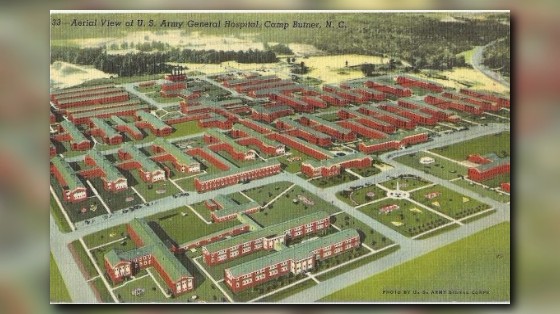On August 4, 1942, Camp Butner, a 40,000-acre military training facility, officially opened.
The camp spanned parts of Durham, Granville and Person Counties and was large enough to accommodate more than 30,000 troops. The rolling farmland that covered most of the camp’s acreage was used for a range of exercises, including the rehearsal of gas attacks, camouflage training and simulated river crossings.
As the war progressed, Camp Butner’s mission evolved from being primarily a training facility to include the housing of prisoners of war. It served as one of two principal prison camps in North Carolina, the other being Fort Bragg.
Italian prisoners were the first to arrive, and their numbers swelled to roughly 3,000 in time. After Benito Mussolini’s regime dissolved in September 1943, the Italians began to head home and German prisoners took their place.
Camp Butner’s prisoners attempted a number of escapes, but only one can be considered successful.
In August 1945, Lt. Kurt Rossmeisl, a German linguist, donned plain clothes and dark glasses before calmly walking out the camp’s front entrance. Considered by some to be the “most dangerous” of the nation’s escaped prisoners at the time, Rossmeisl remained at large in the U.S. until he surrendered in Cincinnati in May 1959.
That year, the Toledo Blade ran a six-part series by Rossmeisl in which he described his escape, his new life in Chicago and his eventual surrender.
At the war’s close, the camp’s structures were demolished and most of the land was returned to its previous owners. The state eventually acquired about a third of the property for a mental hospital, prison, research farm and National Guard training facility.
Other related resources:
· North Carolina and the Two World Wars from N.C. Historical Publications
· North Carolina at Home and in Battle in World War II from the N.C. Museum of History
· Rossmeisl’s articles in the Toledo Blade:
· Resources related to military history from the State Library
For more about North Carolina’s history, arts, nature and culture, visit DNCR online. To receive these updates automatically each day, make sure you subscribe by email using the box on the right, and follow us on Facebook and Twitter.


